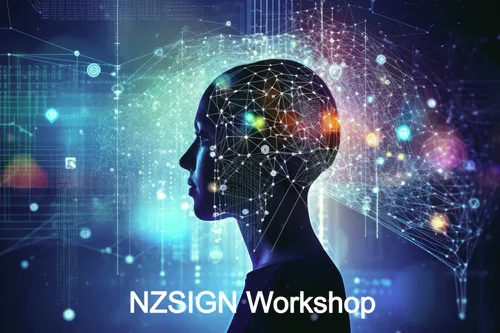Evidence-based Neuropsychological Practice
- Friday 11 July 2025
- 9:00 am - 5:00 pm
- Rydges Hotel, Wellington Airport, 28 Stewart Duff Drive, Rongotai, Wellington, Wellington, 6022, New Zealand
Full day workshop (6 hours):
Part 1 – Use of Reliable Change Indices (2 hours approx.).
Detection of change in cognitive function at retest is a cornerstone of clinical neuropsychological practice. Change may be in the direction of improvement associated with spontaneous recovery after brain trauma, for example, or in response to an intervention. Change also may be in the direction of deterioration, for example, lowered cognitive function associated with an advancing neurodegenerative disease. Neuropsychologists are uniquely positioned to detect change in cognition through use of the best available measures of the relevant constructs, combined with well-established statistical techniques, collectively known as Reliable Change Indices (RCIs). However, proliferation of RCI techniques, together with some controversies associated with particular techniques may cause uncertainty regarding the best approach. In this presentation, derivation of RCIs is briefly reviewed together with the necessary test information required to calculate RCIs. Commonly used RCIs will then be described and compared using a clinical data set. This presentation will conclude with recommendations for routine practice and some useful references.
Part 2 - Reading published studies for your patient’s benefit (4 hours approx.).
The term evidence-based practice is so over-used as to have lost much of its meaning. In this presentation, the widely accepted definition of evidence-based practice will be outlined, which requires clinicians to critically evaluate the knowledge they gain from clinical experience, and critically evaluate statistically significant research findings, to optimize information to guide clinical practice. The final step of the widely accepted definition is to integrate quality evidence with patient values and circumstances. Fortunately, the techniques of evidence-based practice can be readily applied by most well-trained psychologists, and are ideally suited to refinement in a peer-review settings. There are excellent educational resources available to support self-guided learning.
In this workshop, the principles of evidence-based practice will be briefly reviewed and the core techniques for identifying quality research to guide diagnosis or treatment will be illustrated with practice examples. These techniques comprise the suite of ‘critical appraisal’ skills. Workshop participants will then be given the opportunity to practice these critical appraisal skills to see how published studies can be used to make patient-specific statements regarding the probability of diagnosis, or the probability of success from treatment. In the absence of high-quality evidence, the evidence-based practice approach encourages clinicians to be cautious in their assertions of knowledge certainty. An additional, essential ingredient of the critical appraisal approach includes negotiating the provision of ‘best-evidence’ with individual patient circumstances and values. This negotiation provides an opportunity to accommodate the priorities of cultural-safety.
Primary learning objectives of this workshop include the demonstration that critical appraisal skills enhance the provision of quality health-care in clinical neuropsychology. This objective will be achieved by participants gaining knowledge of the key criteria for quality evidence, and practicing evaluation of these criteria. Participants will also gain familiarity with the learning resources to underpin evidence-based practice.
Stephen C. Bowden
PhD, ACNpA, FCCN, FAPS, FNAN (USA)
Melbourne School of Psychological Sciences, University of Melbourne and Department of Clinical Neurosciences, St. Vincent’s Hospital, Melbourne.
Stephen Bowden is a Professorial Fellow in the Melbourne School of Psychological Sciences, University of Melbourne and Honorary Consultant Neuropsychologist in the Department of Clinical Neurosciences, St Vincent’s Hospital, Melbourne. His research has been funded by the Australian National Health and Medical Research Council, Australian Research Council, National Campaign Against Drug Abuse, Australian Brain Foundation, and the Medical Research Future Fund.
Stephen Bowden has served as National Chair of the Australian Psychological Society College of Clinical Neuropsychologists (twice) along with terms on other committees of the Australian Psychological Society. He has also served in senior academic administrative roles including as Convenor of the Graduate Professional Program in Clinical Neuropsychology at the University of Melbourne. He is now a director of the newly formed Australian Clinical Neuropsychology Association (ACNpA), formed to promote high standards of neuropsychological practice in Australia.
Stephen Bowden has presented many invited lectures and professional development workshops in Australia and internationally and he has a particular interest in promoting evidence-based practice. He is currently a member of the Editorial Board of Archives of Clinical Neuropsychology and has previously been a member of the Editorial Boards ofThe Clinical Neuropsychologist, Psychoeducational Assessment, and with David Loring is co-Editor-in-Chief of Neuropsychology Review (a Springer-Nature journal).





